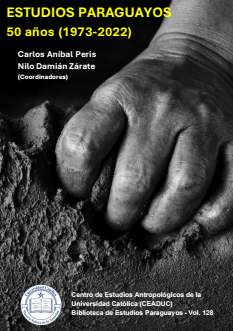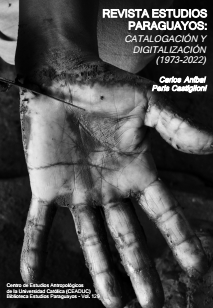The crossroads of recent memory
DOI:
https://doi.org/10.47133/respy41-23-2-2Keywords:
memory, truth and justice, democracy, denialism, dictatorship, authoritarianismAbstract
The memory of the recent past in Paraguay is and will be a space of intersections and disputes due to the conservative nature of its state and society in the 20th century and what has passed since the 21st century. With its brief exceptions. The memory of the democratic and progressive struggle was defeated and erased several times. While the official heroic nationalist narrative, especially the Stronismo one, from 1954 to 1989, of deep denialism, was only moderated and updated, by a minimizing and distorted one, which focuses on a solitary character, to save an entire regime that even today, is hegemonic.
Downloads
References
Arendt, H. (2003). Eichmann en Jerusalén: Un estudio sobre la banalidad del mal. Lumen.
Benjamin, W. (2008). Tesis sobre la historia y otros fragmentos. Itaca.
Candau, J. (2002). Antropología de la memoria. Nueva Visión.
Comisión de Verdad y Justicia de Paraguay, RP. (2008). Informe Final. Anivé Haguá Hoikó. Paraguay. Recuperado de https://www.codehupy.org.py/verdadyjusticia/.
Connerton, P. (1989). How Societies Remember. Cambridge University Press.
Halbwachs, M. (2004). La memoria colectiva. Prensas Universitarias de Zaragoza.
Hirsch, M. (2012). The Generation of Postmemory: Writing and Visual Culture After the Holocaust. Columbia University Press.
Lacapra, D. (1998). History and Memory after Auschwitz. Cornell University Press.
Levi, P. (2000). Los hundidos y los salvados. Muchnik Editores.
Nora, P. (2008). Pierre Nora en Les lieux de mémoire. LOM Ediciones.
Peñas, E. (2023). Muere el pasado. Revista Ethic. España. Recuperado de https://ethic.es/2023/08/muere-el-pasado/.
Pochak, A. (2023). La memoria forma parte de las obligaciones que tiene el Estado, como la justicia, políticas de reparación y no repetición. Universidad de Chile. Chile. Recuperado de https://uchile.cl/noticias/208359/andrea-pochak-entrevista-a-la-nueva-comisionada-de-la-cidh.
Sarlo, B. (2005). Tiempo pasado. Cultura de la memoria y giro subjetivo. Una discusión. Siglo XXI Editores.
Todorov, T. (2000). Los abusos de la memoria. Paidós.
Published
How to Cite
Issue
Section
License
Copyright (c) 2023 Federico Tatter y Revista Estudios Paraguayos

This work is licensed under a Creative Commons Attribution 4.0 International License.
















